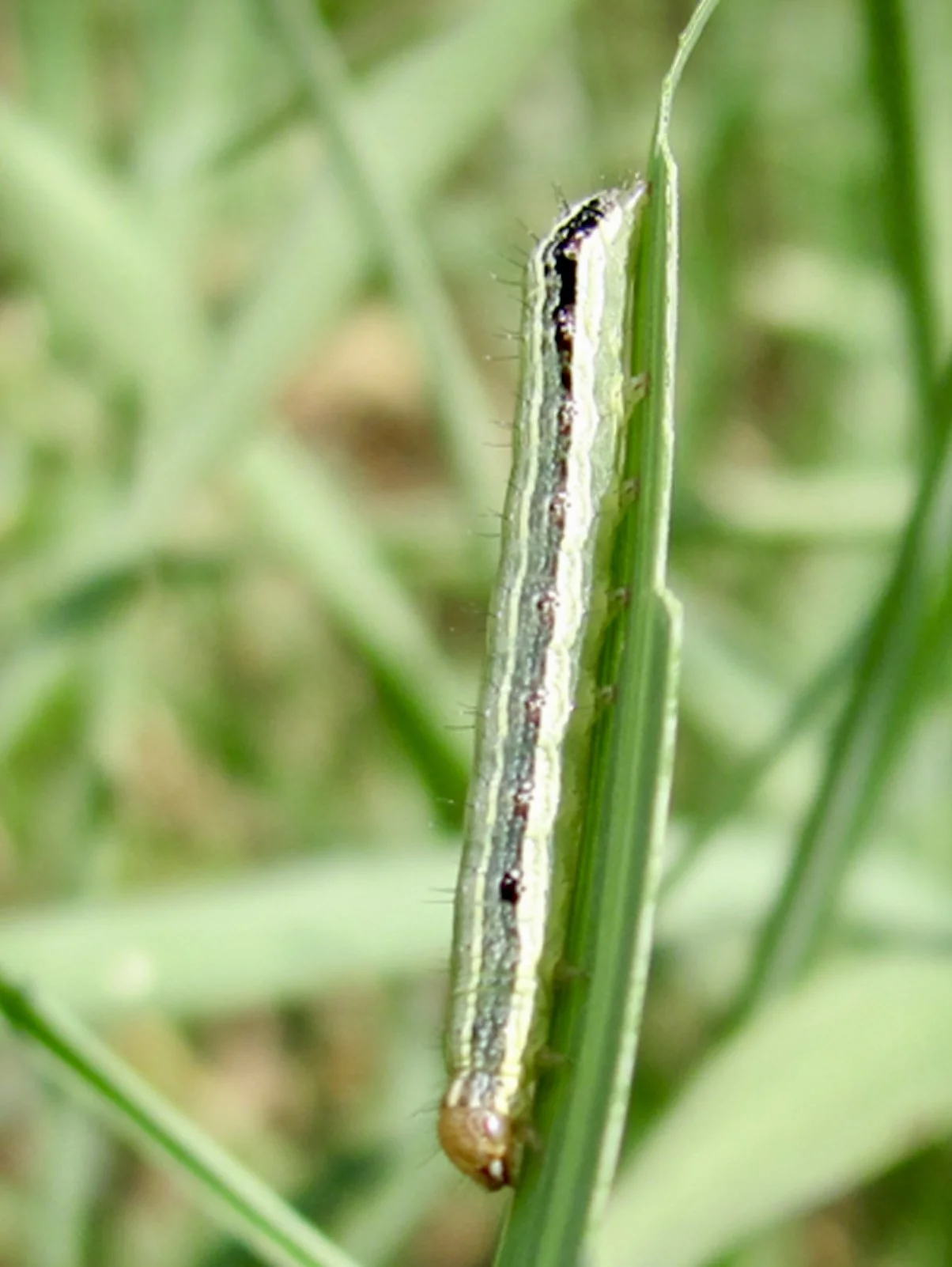Why I Hate Armyworms (and How We Might Have Dodged a Bullet This Time)
What Are Armyworms and Why Are They a Threat to Alabama Pastures?
There are few things that make my stomach drop faster than spotting an armyworm in our pastures. That one little worm—just one—is like a blinking warning light on the dashboard of cattle farming.
This is a big guy spotted in the pasture! Armyworms this size can decimate a pasture in no time.
Armyworms may be small, but they move in groups that can wipe out an entire pasture in just 48 hours. They feed aggressively on fertilized, lush grasses—you know, the kind we’ve poured lots of money and lots of effort into growing. Bermuda, Pearl Millet, Bahia, Fescue—it’s all on the menu for these pests.
Basically, if its green and thriving, they'll mow it down overnight.
Our Armyworm Battle: 30 Acres, One Worm, and a Whole Lot of Insecticide
When we spotted one lonely armyworm the other day, we didn’t stop to think. We immediately sprayed that particular 30 acre pasture with insecticide. Was it dramatic? Maybe. Did we possibly jump the gun and spray before we had a full blown infestation? Probably so. But last year taught me that waiting even a day too long means you might as well say goodbye to your grazing. And late summer grazing is everything for ensuring your herd goes into the winter healthy.
Call it paranoia or call it wisdom, but we’d rather be safe than sorry. And so far, we haven’t seen another army worm since. We hope and pray that early action saved us a whole lot of heartache.
Why You Have to Catch Armyworms Early (Especially in Fertilized Grass)
These next few days are crucial. Armyworms are sneaky, fast, and devastating. You can’t afford to let your guard down. One missed day of checking your pastures could mean a total loss, and they’re especially drawn to well-fertilized grass. The grass you’ve nurtured, fed, and babied. The grass that was finally starting to pay off? That’s their favorite buffet.
They don’t care how carefully you managed rainfall or how much that load of fertilize costed you. They’ll chew it all to the root, and leave your cattle standing around wondering what happened.
This armyworm is eating a Bermuda grass strand.
How We Are Staying Ahead of the Armyworms This Season
So what are we doing differently?
Daily pasture checks—early morning and late evening walks through the grass. We pull back big patches of grass to look at the dirt even if we don’t see any on top of the grass—sometimes in the heat of the day they like to hide in the shade. I’m leaving nothing unchecked this go-around!
Looking for early warning signs like chewed blades, brown patches, and those dreaded silvery moths fluttering near the grass line.
Staying tuned in to local reports and talking with neighboring farmers. My neighbor went ahead and cut a big pasture for hay after he saw a couple of worms—they can only feed off cut grass for a day, and there's not much grazing lost in that event.
Spraying if there’s even a whisper of an armyworm presence. Once again, this may be viewed as dramatic. The recommendation is to wait for an infestation before actually spraying, but it usually doesn’t take long to go from just a whisper of a presence to a full blown infestation. They’re like a plague of Biblical proportions!
We’ll keep spraying when needed and praying always. Because on a place like this, vigilance is everything—and so is good timing. I’ll keep you posted, but for now, it looks like we might’ve jumped on it just in time.
Let’s hope so. Because if there’s one thing I know for sure, it’s this:
I hate armyworms.
But you know what else? It’s humbling. That something so small—so seemingly insignificant—can gather in numbers and take down something as big and well-prepared as a cattle operation. It’s a good reminder to stay watchful, stay thankful, and stay humble. Even out here in the pastures, where we work hard and do our best, it’s not always the big things that bring us the most trouble—it’s the little ones that can sneak up and upend you.
I’m not ignoring a single armyworm this year.
Sunset armyworm checks: It may look peaceful, but we’re on high alert.
Stay thankful, stay watchful. Erin Glover
Want more stories like this one? Subscribe to get Field Notes from Crooked Creek Ranch—monthly reflections, updates on family, faith and ranch life straight to your inbox.




